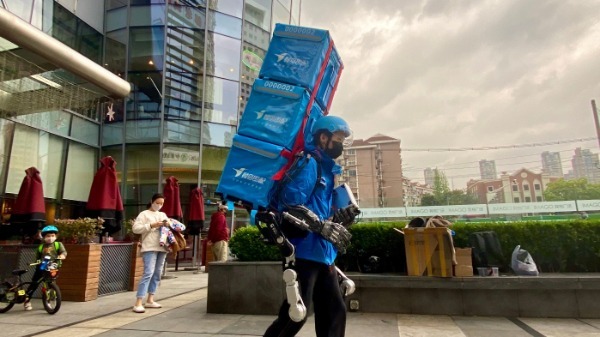Exoskeleton tech sheds light on future delivery


Other companies producing exoskeleton products include Beijing soft exoskeleton system developer C-Exoskeleton, Shanghai rehabilitation robot maker Fourier Intelligence, Hangzhou RoboCT Technology in Zhejiang province and Shenzhen Milebot Robotics Technology Co in Guangdong province.
With the great potential in logistics sector, retail company Sunning unveiled a self-developed exoskeleton last year to help its warehouse workers.
In 2018, e-commerce giant JD applied exoskeleton robots developed by C-Exoskeleton.
In early April, the National Medical Products Administration granted approval to RoboCT's UGO210 lower extremity exoskeleton walking rehabilitator as companion diagnostics products, according to industry analysis website 36Kr.
Besides these scenarios, Zhang says exoskeletons may one day become a part of your life, like smartphones.
"It can help people climb mountains, assist the elderly in everyday tasks and even help in workouts," he says.
At the Consumer Electronics Show 2020 in January in Las Vegas, South Korea's tech giant Samsung unveiled Gait Enhancing and Motivation outfit that pairs with augmented reality glasses. It gives users workout instructions.
China's exoskeleton market is in early phase with its scale increasing from 6.2 million yuan ($877,000) in 2017 to nearly 45 million yuan the following year, according to Beijing market consultancy Intelligence Research Group.
Amid the country's waning demographic dividend and rising aging population, industry experts estimate that the exoskeleton market size has high growth potential, which has caught investors' attention.
In February last year, ULS Robotics gained millions of yuan in the angel investment led by Future Capital, with K2 Angel Partners as the follower.




































